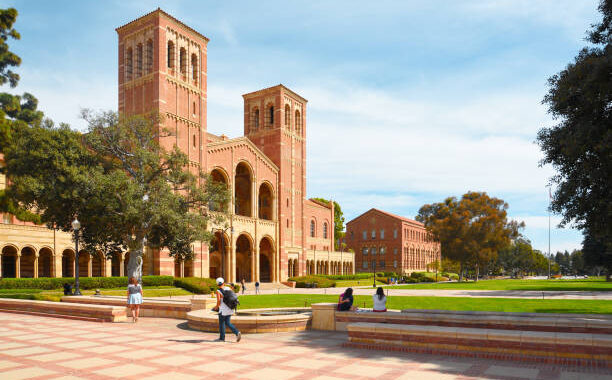About Us
Our mission at FTZ is to provide students with introduction level requirements and awareness to professional careers outside of a traditional educational environment.
Contact usContact Us Today
- 145 fleet st #233 National Harbor, MD 20745
- 240-935-1802
- info@functionaltrainingzone.net
- Monday-Friday: 9:30am-4pm
How to keep your dorm cozy but still a great study environment
By: Chris the Graduate When you’re in college, your dorm room is so much more than just a place to sleep – it’s your personal hangout, study zone, and mini-home. The trick is creating a cozy, welcoming space that doesn’t distract you from studying. With these budget-friendly ideas, you can balance both vibes without breaking the bank! Overhead dorm lights are usually way too harsh. Here’s how to make your lighting work for both chilling and focusing: Dorm floors are usually cold and, well, not the coziest. A small rug and a few throw blankets can make a huge difference: A clean workspace can keep you focused and less stressed during study time. Here’s how to make it functional but stylish: Add a few personal items that make you happy but aren’t distracting: Sometimes it’s the little things, like smell and sound, that make your space feel cozy and welcoming. Finally, don’t forget to make sure your chair is comfortable! You’ll be sitting there a lot, so it’s worth it to add a cushion or even a cover to improve the basic dorm chair. Making your dorm feel like both a cozy retreat and a productive study zone is all about balance. With a few budget-friendly touches, you can create a room that’s comfortable enough for relaxing yet organized enough to help you stay focused. And remember, this is your space, so don’t be afraid to add personal elements that make it feel like home! Think of your dorm room as an extension of your college experience – a place where you can study hard, recharge, and make memories. A well-designed dorm isn’t just nice to look at; it can actually help you stay on top of your studies and give you a sense of calm and motivation when you need it most. When you feel comfortable in your space, it’s easier to focus, stay organized, and find some balance between work and play. So, whether it’s adding some string lights, layering with blankets, or organizing your desk, these small changes can make a big difference. As the semester goes on, you can even switch up a few things to keep your space fresh and inspiring. After all, college life is full of change – and your dorm room should be too! Take pride in building your little haven where you can hit the books, unwind, and enjoy every part of the journey.
- Chris The Grad
- 0 Comments
- November 23, 2024
Personal Finance for Students
By: Chris the Graduate College life is busy, full of classes, clubs, and (hopefully) some downtime with friends. But handling your finances doesn’t have to be another big stressor. A bit of planning can give you control over your money, help you save, and still leave room for fun! Get Clear on Your Income and Expenses First things first: know what you’re working with. Track your income (like part-time jobs, scholarships, or allowances) and compare it with your expenses. Here’s how to break it down: By dividing expenses into these categories, you can get a clear picture of where your money goes and identify areas to cut back if needed. Pick a Budgeting System Budgeting doesn’t have to be complicated. Here are two easy methods for beginners: Choose a method that works for you, or even try a mix. Apps like Mint, You Need a Budget (YNAB), or PocketGuard can make it easy to track spending on the go. Cut Costs Without Cutting the Fun College life doesn’t have to be expensive. Try these cost-cutting hacks that don’t leave you missing out: Save Smartly for the Future (and Unexpected Expenses) Start a small emergency fund for unexpected expenses like car repairs or last-minute school supplies. Even saving $10 a week will add up over time and give you a cushion if something unexpected comes up. Set Financial Goals (and Reward Yourself!) Whether it’s saving up for spring break or a new gadget, setting goals helps you stay motivated. Treat yourself along the way – a small celebration when you reach a savings milestone can keep things exciting. Use Credit Wisely (and Don’t Let Debt Pile Up) Credit cards can be useful, but it’s easy to overspend. Keep these tips in mind: Keep Checking In Personal finance is a marathon, not a sprint. Every few months, check in on your spending to see if your goals still align. Don’t stress if you make mistakes – building financial habits takes time! By taking control of your finances now, you can set yourself up for a secure future without sacrificing the best parts of college.
- Chris The Grad
- 0 Comments
- November 17, 2024
Best Apps and Tools for College
By: Chris the Graduate Juggling classes, assignments, and social life can be overwhelming in college, but the right tools can make all the difference. Here’s a concise list of must-have apps and tools to keep you organized and productive: Notion Notion serves as an all-in-one workspace that combines note-taking, task management, and project organization. Its highly customizable interface lets you create databases, to-do lists, and calendars in one place. It’s particularly great for collaboration on group projects, allowing for real-time sharing and editing. Evernote Evernote is a powerful note-taking app designed for capturing and organizing your ideas efficiently. It offers cross-platform access, enabling you to sync notes across all your devices. You can also use the web clipping feature to save articles and resources directly into your notebooks, making it easy to reference them later. Google Drive Google Drive is a cloud storage service that allows you to store files and collaborate on documents, spreadsheets, and presentations. Its real-time collaboration features make group projects seamless, and you can access your files from anywhere, ensuring you never lose track of important documents. Todoist Todoist is a task management app that helps you organize assignments and personal tasks effectively. Its user-friendly interface allows you to add tasks, set due dates, and prioritize your workload with ease. The recurring tasks feature is particularly useful for managing weekly assignments and reminders. Quizlet Quizlet is a study tool that lets you create digital flashcards, quizzes, and interactive study games. It offers various study modes, such as matching games and practice tests, making learning engaging. You can also access and share study sets created by other users, which is a great resource for exam prep With these tools in your digital toolkit, managing your college workload becomes a lot easier. Find the ones that fit your style, and take control of your academic journey!
- Chris The Grad
- 0 Comments
- October 26, 2024
Test Anxiety
By: Chris the Graduate As a student, feeling a bit nervous before a big test is normal. But what happens when those nerves turn into full-blown anxiety? Test anxiety is a real challenge for many students and can negatively impact your performance, even if you’ve studied hard and are well-prepared. In this blog, we’ll explore how to recognize signs of test anxiety and offer effective strategies to manage it, helping you stay calm, confident, and ready for success. What is Test Anxiety? Test anxiety is the excessive worry, fear, or dread of an upcoming test. While a bit of nervousness can motivate you to study, too much anxiety can make it difficult to concentrate, recall information, or think clearly during the exam. It’s like your brain freezes, and all the preparation you’ve done feels like it’s slipping away. Signs You Might Have Test Anxiety How do you know if you’re experiencing test anxiety rather than just normal nerves? Here are some common signs: If you recognize any of these symptoms, test anxiety is likely affecting you. Strategies to Overcome Test Anxiety The good news is that there are several proven strategies you can use to manage and reduce test anxiety. Here’s how you can get started: 1. Prepare Early and Thoroughly Anxiety often stems from a fear of being unprepared. To avoid last-minute cramming, start studying early. Break your study material into manageable chunks, create a schedule, and stick to it. The more prepared you are, the less room there is for anxiety. 2. Practice Relaxation Techniques Breathing exercises, progressive muscle relaxation, or mindfulness meditation can help you calm your body and mind. Try this simple breathing exercise: 3. Visualize Success Visualization is a powerful mental tool. Picture yourself sitting in the exam room, feeling confident and calm as you answer questions. Imagine walking out of the exam knowing you’ve done your best. Positive visualization can help shift your mindset from anxiety to confidence. 4. Simulate Test Conditions Practice under test-like conditions at home. This includes timing yourself, sitting at a desk, and working through practice exams. By recreating the exam environment, you can desensitize yourself to the pressures of the real test. 5. Stay Physically Active Exercise is a natural anxiety reliever. Physical activity boosts endorphins, which improve your mood and lower stress. Whether it’s a walk, a jog, or a quick workout, moving your body can help clear your mind and improve focus. 6. Use Positive Self-Talk Negative self-talk like “I’m going to fail” or “I don’t know anything” can heighten your anxiety. Replace these thoughts with positive affirmations such as “I’ve studied and prepared,” “I’m capable,” and “I will do my best.” 7. Get Enough Sleep A lack of sleep can increase anxiety and make it harder to focus. Make sure to get a full night’s rest before your test. A well-rested brain is more effective at recalling information and solving problems. 8. Eat Well and Stay Hydrated Your brain needs fuel to perform well. Eat a balanced meal before your test—avoid sugary snacks that may give you a quick burst of energy but leave you feeling sluggish. Staying hydrated is also key to keeping your body and mind alert. 9. Arrive Early to the Test Arriving late or feeling rushed can elevate your anxiety. Plan to arrive at the exam location a bit early. Use that time to get settled, practice some deep breathing, and calm your nerves. What to Do During the Test Even with all the preparation, anxiety might creep up during the test. Here are some in-the-moment strategies: Test anxiety can feel overwhelming, but it doesn’t have to control your performance. By recognizing the signs and using these strategies to manage your anxiety, you can turn those pre-test jitters into positive energy. Remember, preparation, relaxation, and self-confidence are key to overcoming test anxiety and unlocking your full potential. You’ve got this!
- Chris The Grad
- 0 Comments
- October 25, 2024
5 Careers That Do Not Require College Degrees
By: Chris the Graduate So, you’re thinking about your career options and wondering if a college degree is really necessary. The truth is, there are plenty of fulfilling and well-paying jobs out there that don’t require a four-year degree. Whether you’re looking to jump into the workforce right away or considering a career change, here are five solid options that could lead to a rewarding career without the college hassle. 1. Trade Skills (Electrician, Plumber, Carpenter) What It Is: Skilled trades are all about hands-on work. Think electricians, plumbers, and carpenters—these folks keep our homes and businesses running smoothly. How to Get Started: Many of these careers require apprenticeships where you learn the ropes from someone with experience. Trade schools also offer programs that can get you certified and ready to work. Why It Rocks: 2. Commercial Driver (CDL) What It Is: With the rise of online shopping, commercial drivers especially truck drivers are in high demand. You’ll be transporting goods across the country, which can be pretty adventurous! How to Get Started: To drive commercially, you’ll need a Commercial Driver’s License (CDL). Training programs will prepare you for both the written and practical exams. Why It Rocks: 3. Real Estate Agent What It Is: Real estate agents help people buy, sell, or rent properties. If you’re a people person and enjoy networking, this could be a perfect fit. How to Get Started: No degree required! You’ll need to complete a state-approved training program and pass a licensing exam. Why It Rocks: 4. Sales Representative What It Is: Sales reps are the driving force behind many businesses, selling products or services to customers and clients. How to Get Started: While some roles may require industry knowledge, many sales jobs are open to those without a degree. You’ll usually get training on the job. Why It Rocks: 5. Healthcare Support Roles (Medical Assistant, Home Health Aide) What It Is: The healthcare industry needs support staff to help keep things running smoothly. Think medical assistants and home health aides critical roles that keep patients cared for. How to Get Started: These positions typically require a high school diploma and a certification program, with some on-the-job training. Why It Rocks: Not everyone needs a college degree to find a satisfying and lucrative career. There are plenty of paths to success that focus on skills, experience, and hard work instead. Whether you’re drawn to the trades, healthcare, sales, or real estate, these careers offer great opportunities to build a fulfilling life without the burden of student debt. So, take a look, do some research, and see which path resonates with you!
- Chris The Grad
- 0 Comments
- October 19, 2024
What is Online College?
By: Chris the Graduate As the landscape of education continues to evolve, online college has emerged as a viable alternative to traditional brick-and-mortar institutions. With advancements in technology, students can pursue higher education from the comfort of their homes, making it an appealing option for many. In this blog, we’ll explore what online college entails, the pros and cons of this educational format, and some essential factors to consider for students contemplating this route. Online college refers to a learning environment where students can complete their degree programs through the Internet. Courses are typically delivered through a combination of recorded lectures, live video sessions, and digital resources, allowing students to engage with course materials at their own pace. Various institutions offer online degree programs, including community colleges, universities, and specialized online schools, catering to a wide range of academic disciplines. Pros of Online College Cons of Online College Important Factors to Consider Online college presents a valuable alternative for students considering their options for higher education. With its flexibility, accessibility, and diverse course offerings, it can cater to a wide range of learning needs and lifestyles. However, it’s crucial to weigh the pros and cons, considering personal preferences and career goals. By doing thorough research and making informed decisions, students can find an educational path that best suits their needs and aspirations in today’s evolving academic landscape. Whether you’re looking to start a new career, advance in your current field, or pursue a passion, online college might just be the key to unlocking your potential.
- Chris The Grad
- 0 Comments
- October 12, 2024
Exploring Study Abroad Programs: A Gateway to Global Learning
By: Chris the Graduate Studying abroad is one of the most enriching opportunities college students can experience. Whether it’s immersing yourself in a new culture, learning a language, or gaining a global perspective on your field of study, study abroad programs offer a unique chance to expand your horizons. But with so many options available, how do you choose the right program, and what can you expect? Let’s explore the benefits, types of programs, and tips for making the most of your study abroad experience. The Benefits of Studying Abroad 1. Cultural Immersion One of the most significant advantages of studying abroad is the opportunity to immerse yourself in a different culture. Living in a foreign country allows you to experience daily life from a new perspective, whether it’s trying local cuisine, participating in traditional festivals, or simply navigating the public transportation system. For example, if you study in Japan, you might practice the art of tea ceremonies or learn about the intricacies of Japanese etiquette. These experiences can deepen your cultural understanding and make you more adaptable and open-minded. 2. Academic Growth Study abroad programs often provide access to courses and educational opportunities that may not be available at your home institution. Imagine studying Renaissance art in Florence, marine biology on Australia’s Great Barrier Reef, or international business in Shanghai. These experiences can enhance your academic growth by exposing you to new methodologies, perspectives, and resources. Additionally, many programs offer hands-on learning opportunities, such as internships or research projects, that allow you to apply your knowledge in real-world settings. 3. Language Skills If you’re studying a foreign language, there’s no better way to improve your fluency than by living in a country where that language is spoken. For instance, spending a semester in Spain can help you refine your Spanish skills through daily interactions while attending classes taught in the language can deepen your comprehension. Even if you’re not studying a language, simply being in an environment where a different language is spoken can enhance your communication skills and boost your confidence. 4. Personal Development Studying abroad challenges you to step outside your comfort zone, fostering personal growth and independence. You’ll learn to navigate unfamiliar environments, adapt to new customs, and solve problems on your own. This experience can build resilience, self-reliance, and a greater sense of self. For many students, study abroad is a transformative experience that shapes their future goals and perspectives. 5. Career Advantages In today’s globalized world, employers value candidates with international experience. Studying abroad can make your resume stand out, demonstrating your adaptability, cultural competence, and willingness to take on challenges. Whether you’re pursuing a career in international relations, business, education, or any other field, the skills and experiences you gain abroad can give you a competitive edge in the job market. Types of Study Abroad Programs 1. Semester or Year-Long Programs These programs allow you to spend a full semester or academic year at a partner university abroad. They’re ideal if you want to fully immerse yourself in another culture and academic environment. For example, many universities have exchange programs with institutions around the world, allowing you to study abroad while paying your regular tuition fees. 2. Short-Term Programs If a semester or year abroad doesn’t fit into your schedule, short-term programs—such as summer or winter break courses—might be a better option. These programs usually last a few weeks and offer intensive study in a specific subject. For example, you could spend a month in Costa Rica studying environmental science or two weeks in France learning about European history. 3. Faculty-Led Programs In faculty-led programs, a group of students travels abroad with a professor from their home university. These programs are often focused on a specific academic topic and include a mix of classroom learning and field experiences. For instance, a biology professor might lead a study abroad trip to the Amazon Rainforest to study biodiversity, combining lectures with hands-on research in the field. 4. Internship and Service-Learning Programs These programs combine academic study with practical experience through internships or service projects. For example, you might intern with a non-profit organization in South Africa or participate in a community development project in India. These programs provide valuable work experience while allowing you to contribute to the local community. Tips for Making the Most of Your Study Abroad Experience 1. Research Your Options Start by exploring the study abroad programs offered by your college or university. Consider factors such as the location, length of the program, cost, language requirements, and academic focus. Talk to study abroad advisors, professors, and students who have previously studied abroad to get their insights and recommendations. 2. Plan Ahead Once you’ve chosen a program, it’s essential to plan ahead. Make sure you understand the application process, including deadlines, required documents, and any prerequisites. You’ll also need to consider how study abroad fits into your academic plan—will the credits transfer back to your home institution? Will you need to take specific courses before or after your time abroad? 3. Embrace the Experience While abroad, immerse yourself in the local culture, and take advantage of every opportunity to learn and explore. Attend local events, try new foods, and engage with people in the community. Don’t be afraid to step out of your comfort zone—this is your chance to grow both personally and academically. 4. Stay Connected Keep in touch with your home university, friends, and family while you’re abroad, but also make an effort to build new relationships in your host country. Networking with professors, students, and professionals abroad can open doors to future opportunities. A World of Possibilities Study abroad programs offer an unparalleled opportunity to expand your academic, cultural, and personal horizons. Whether you choose a semester-long program in Europe, a short-term course in Asia, or an internship in South America, studying abroad can be a life-changing experience. It’s an investment in your future, providing you with the skills, knowledge, and perspectives to navigate an increasingly interconnected world.
- Chris The Grad
- 0 Comments
- September 21, 2024
Living on Campus vs. Off Campus: Which is Right for You?
By: Chris the Graduate One of the biggest decisions you’ll make as a college student is whether to live on or off campus. Each option has its perks and challenges, and the choice you make can significantly impact your college experience. Whether you’re a freshman stepping into college life or an upperclassman considering a change, weighing the pros and cons is essential. Let’s dive into the key differences between living on campus and off campus, so you can decide which one suits your lifestyle and goals. Living on Campus: The Immersive Experience 1. Convenience and Proximity Living on campus offers the ultimate convenience. You’re just minutes away from your classes, the library, dining halls, and other campus resources. Imagine rolling out of bed 10 minutes before your 9 a.m. class and still making it on time. This proximity can save you a lot of time and stress, especially during exam season when every minute counts. 2. Social Opportunities When you live on campus, you’re right in the heart of college life. Dorms are buzzing with activity, and it’s easy to meet new people and get involved in campus events. For example, many students find their closest friends in their dorm or residence hall. There’s also the added benefit of being surrounded by other students who are going through the same experiences, which can create a strong sense of community and support. 3. All-Inclusive Amenities Most on-campus housing comes with utilities, internet, and meal plans included, making budgeting simpler. There’s no need to worry about setting up and paying for Wi-Fi, water, or electricity separately. Plus, meal plans mean you don’t have to cook or grocery shop, giving you more time to focus on your studies and social life. 4. Safety and Security College campuses typically have security measures in place, such as 24/7 campus police, secure dorm access, and emergency call stations. This can provide peace of mind, especially for students and their families. Knowing that help is always nearby can make living on campus feel safer than off-campus options. Living Off-Campus: Independence and Flexibility 1. More Freedom and Independence Living off campus usually means more freedom. You can choose your own living space, cook your own meals, and live by your own rules. This independence can be empowering and a great way to prepare for life after college. For instance, living off campus might allow you to have pets, host friends without restrictions, or decorate your space to your liking. 2. Potential Cost Savings Depending on your location and the cost of living in your college town, living off-campus can be more affordable than on-campus housing. You have the option to share an apartment with roommates, which can significantly reduce your rent and utility costs. Additionally, you’re not tied to a meal plan, so you can save money by cooking your own meals. 3. Real-World Experience Living off campus gives you a taste of the real world. You’ll learn to manage household responsibilities like paying rent, setting up utilities, and dealing with landlords. This experience can be invaluable as you transition from college to post-graduation life. It’s an opportunity to develop life skills that will serve you well beyond your college years. 4. Separation from Campus Life While living off campus offers freedom, it can also make you feel disconnected from the campus community. Commuting to class, missing out on impromptu social gatherings, and being removed from the hustle and bustle of campus life are potential downsides. However, some students find this separation beneficial for maintaining a healthy work-life balance, especially if they need a quiet space to study and relax. Making the Choice: What’s Right for You? 1. Consider Your Priorities Your choice should align with your priorities and lifestyle. If you value convenience, social opportunities, and being fully immersed in college life, living on campus might be the better choice. However, if you’re seeking independence, more control over your living situation, and potential cost savings, off-campus living could be the way to go. 2. Evaluate Your Budget Finances are a significant factor in this decision. Carefully consider the costs associated with both options, including rent, utilities, food, and transportation. Don’t forget to account for hidden costs like parking fees, commuting expenses, and the potential need for a car if you live off campus. 3. Think About Your College Experience Reflect on the kind of college experience you want. Do you want to be in the middle of all the action, or do you prefer a quieter, more independent lifestyle? Your living situation can shape your college years in more ways than you might expect. Ultimately, the decision to live on or off campus is personal and depends on your preferences, budget, and goals. Both options have their unique advantages and challenges, and what works for one person might not work for another. Whatever you choose, remember that your living situation is just one part of your college experience. Make the most of it by getting involved, making connections, and embracing the opportunities that come your way. College is a time of growth, learning, and exploration no matter where you live.
- Chris The Grad
- 0 Comments
- September 14, 2024
The Unspoken Realities of College: What No One Tells You
By: Chris the Graduate When you think about college, you might imagine late-night study sessions, exciting social events, and the freedom of living on your own. While all of these are part of the experience, there’s a lot more to college life that often goes unmentioned. Beyond the lectures and the parties, college is a journey of personal growth and self-discovery. Here are five things no one tells you about college and why they’re important The Learning Curve Isn’t Just Academic The academic challenges of college are well-documented. However, the steepest learning curve might not come from the classroom but from navigating your new life. Imagine this: you’re juggling a demanding course load, a part-time job, and new friendships. Suddenly, you’re responsible for your schedule, your meals, and your laundry. This independence is both exhilarating and overwhelming. Learning how to manage your time, set priorities, and take care of yourself are lessons that go beyond any textbook and they’re crucial to your success. Networking Starts on Day One It’s easy to assume that networking is something to worry about in your junior or senior year, but that’s a misconception. Take the example of Sarah, a freshman who joined a student organization related to her major. By the end of her first year, she had connected with upperclassmen who gave her invaluable advice, introduced her to professors, and even helped her land a summer internship. Networking isn’t just about finding a job; it’s about building relationships that will support and enrich your college experience. Grades Aren’t Everything In high school, getting straight A’s might have been your top priority, but college is a different ballgame. Take John, who chose to take a notoriously difficult course because he was passionate about the subject, even though it meant risking a lower grade. He didn’t get an A, but he gained a deeper understanding of the material and discovered a potential career path he hadn’t considered before. In college, it’s important to remember that learning and personal growth often matter more than a perfect GPA. You Will Fail (And That’s Okay) Failure is a taboo topic, but it’s an inevitable part of the college experience. Consider Emily, who failed her first major exam and was devastated. She could have let it derail her, but instead, she sought help from her professor, adjusted her study habits, and ultimately passed the course. Failure doesn’t define you—it’s how you respond to it that matters. College is a safe space to learn from your mistakes and develop resilience. Your Mental Health Is a Priority With all the pressures of college, it’s easy to put your mental health on the back burner. But this can lead to burnout, anxiety, and even depression. Think of James, who was so focused on maintaining his grades and social life that he ignored signs of stress until he had a full-blown panic attack. He realized that taking care of his mental health was as important as any assignment or exam. He started attending counseling sessions, practicing mindfulness, and setting boundaries to protect his well-being. College is demanding, but you don’t have to go through it alone. Prioritizing your mental health is essential to thriving during these years. Embracing the College Journey College is a time of immense growth, both academically and personally. It’s a journey filled with challenges, but also with opportunities to learn, connect, and evolve. By understanding the unspoken realities of college, you can navigate these years with greater confidence and resilience. Remember, college isn’t just about getting a degree; it’s about discovering who you are, what you’re passionate about, and how you want to contribute to the world. Embrace the process, learn from every experience, and know that it’s okay to stumble along the way. What matters most is that you keep moving forward, growing, and becoming the best version of yourself.
- Chris The Grad
- 0 Comments
- September 7, 2024
Keeping It Professional: How to Enhance Your Professionalism While in College
By: Chris the Graduate College is a transformative period where you’re not only gaining academic knowledge but also preparing for your future career. Developing professionalism during these years is crucial, as it sets the tone for your career and helps you stand out to potential employers. Here’s how you can improve your professionalism while navigating college life, with practical tips and strategies to enhance your career readiness. 1. Craft a Standout Resume and Cover Letter Why It’s Important A polished resume and cover letter are your first impressions in the professional world. They showcase your skills, experiences, and achievements in a concise manner. Crafting these documents early and keeping them updated is essential for making a strong impact on potential employers. Tips: 2. Master the Art of Networking Why It’s Important Networking is a powerful tool for building professional relationships and finding career opportunities. College provides numerous opportunities to connect with industry professionals, alumni, and peers. Tips: 3. Develop Strong Communication Skills Why It’s Important Effective communication is a cornerstone of professionalism. Being able to articulate your thoughts clearly, listen actively, and respond appropriately is crucial in both academic and professional settings. Tips: 4. Build a Professional Online Presence Why It’s Important In today’s digital age, your online presence can significantly impact your professional image. A well-managed online presence helps you project a professional image and can be a valuable asset in your career search. Tips: Keywords: professional online presence, social media professionalism, personal website, digital footprint 5. Gain Practical Experience Through Internships Why It’s Important Internships provide hands-on experience in your field of study, helping you apply classroom knowledge in a real-world context. They also demonstrate your commitment to your career and enhance your resume. Tips: 6. Adopt a Professional Attitude Why It’s Important Displaying a professional attitude, including reliability, responsibility, and a positive work ethic, can significantly impact how you are perceived in academic and professional settings. Tips: 7. Seek Feedback and Act on It Why It’s Important Constructive feedback helps you understand your strengths and areas for improvement. Actively seeking and acting on feedback demonstrates your commitment to personal and professional growth. Tips: Keywords: constructive feedback, personal growth, professional development, seeking feedback 8. Learn Professional Etiquette Why It’s Important Understanding and practicing professional etiquette is crucial for making a positive impression in both academic and workplace environments. Tips: 9. Stay Organized and Manage Your Time Effectively Why It’s Important Effective time management and organization are key to balancing academic responsibilities and professional development. Being organized helps you meet deadlines and manage multiple tasks efficiently. Tips: 10. Develop a Professional Skill Set Why It’s Important In addition to academic knowledge, possessing a range of professional skills can make you more competitive in the job market. Skills such as project management, data analysis, and proficiency in industry-specific tools are highly valued. Tips: Improving your professionalism while in college is essential for setting yourself up for future success. By focusing on creating a standout resume, mastering networking, developing communication skills, and adopting a professional attitude, you can enhance your career readiness and make a strong impression in your chosen field. Start implementing these strategies today to build a solid foundation for your professional journey.
- Chris The Grad
- 0 Comments
- August 17, 2024








